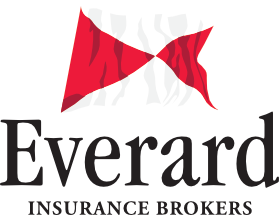
In recent years, ports of all sizes across the world have started exploring the potential of unmanned surface vehicles (USVs). While USVs have the potential to bring a range of benefits, they also carry certain risks.
This post will help you understand the safety concerns associated with USVs, to help you devise effective port policies to meet these risks.
What is a USV?
An unmanned surface vehicle may also be referred to as an uncrewed surface vessel. Colloquially, they may be referred to as drone boats. In any case, these are vessels that can operate on the surface of the water without a crew. While some USVs need to be controlled remotely, others are fully autonomous.
USVs come in a range of sizes for a range of applications, including:
- Commercial shipping
- Seafloor mapping
- Passenger ferries
- Environmental monitoring
- Surveillance
- Security
- Military functions
The Benefits of USVs
USVs offer a range of benefits over crewed vessels:
- They can be significantly more cost-effective than standard vessels because they do not require a crew. Even if the USV is remote controlled, it would still be cheaper to hire a small team of operators than it is to recruit a full crew.
- USVs can operate in conditions that might be unsafe or unsuitable for people, including hostile waters and hazardous environments.
- USVs can operate around the clock, with no need to consider shifts, rotas, breaks, and leave.
Also, some might argue that USVs might be inherently safer than crewed vessels. If all major systems are controlled by automated systems, then there is less chance of human error. Also, computers do not get tired, and they can react immediately to changing circumstances.
Key Safety Concerns of USVs
However, USVs are not without their risks:
- Systems failure or loss of comms could result in collisions and other incidents.
- Other vessels in the port or waterway may struggle to navigate around USVs, or may find their behaviour unpredictable.
- There are cybersecurity risks. For example, cybercriminals could hack into the vessel’s systems and take control.
- There are also growing concerns over the use of USVs for smuggling, surveillance, and terrorist operations.
USV Regulations
There is a strict and rapidly evolving regulatory environment governing the use of USVs. The UK Maritime Autonomous Systems Regulatory Working Group (MASRWG), in collaboration with a range of organisations including The Maritime and Coastguard Agency and the UK Chamber of Shipping, has developed the Maritime Autonomous Surface Ship (MASS) UK Industry Conduct Principles and Code of Practice 2020.
In addition, in 2017 Lloyd’s Register introduced a code to certify unmanned vessels. This code assesses USVs against a set of safety and operational performance standards.
Port Policies for USVs
The MASS UK Industry Conduct Principles and Code of Practice provides a full guide to USV regulations. This guidance outlines the following:
- All USV manufacturers and operators should hold ISO9001:2015 certification governing testing and operational standards. In addition, ISO 27001 certification can address the cybersecurity risks associated with USVs.
- You must apply a thorough risk assessment process to every USV operation. On top of this, you should develop a dedicated safety management system to ensure compliance with all applicable rules and regulations.
- As part of the safety management system, there should be a maintenance management system (MMS) for every USV you operate. This should include regular inspections, with clear reporting procedures and corrective action recommendations for any potential risks identified.
- You should consult your local controlling authority and, if necessary, obtain approval for the use of USVs in your port.
- There should be procedures in place for responding to emergency situations including loss of control, systems failure, fires, collisions, groundings, floods, and acts of violence.
- All port staff should receive full training, whether or not they will be operating the USVs. In the case of operators, the guidance outlines that they must be trained and certified to at least the same recognised standards for the equivalent conventionally crewed vessel.
For a full guide to the regulations governing the use of USVs, consult the MASS UK Industry Conduct Principles and Code of Practice 2020.
Section 3.7 is particularly important, as it outlines the process for getting authorisation and approval for USV deployment, including a list of authorities you may have to consult.
Purchasing USVs
When purchasing USVs, look for the Lloyd’s Register UMS certificate, along with any other relevant certifications that demonstrate that the manufacturer is compliant with all current regulations.
Also look for essential safety features including human-monitored onboard safety systems, and automated processes in the event of comms loss.
Maritime Insurance for USVs
Everard Insurance Brokers are the specialist marine trading division of accredited Lloyd’s brokers James Hallam Limited.
We can help you ensure you have the insurance you need to cover your port for USV operations. We can also advise you on essential risk management considerations for unmanned vessels in your port.
Find out more about our dedicated marine insurance services.

